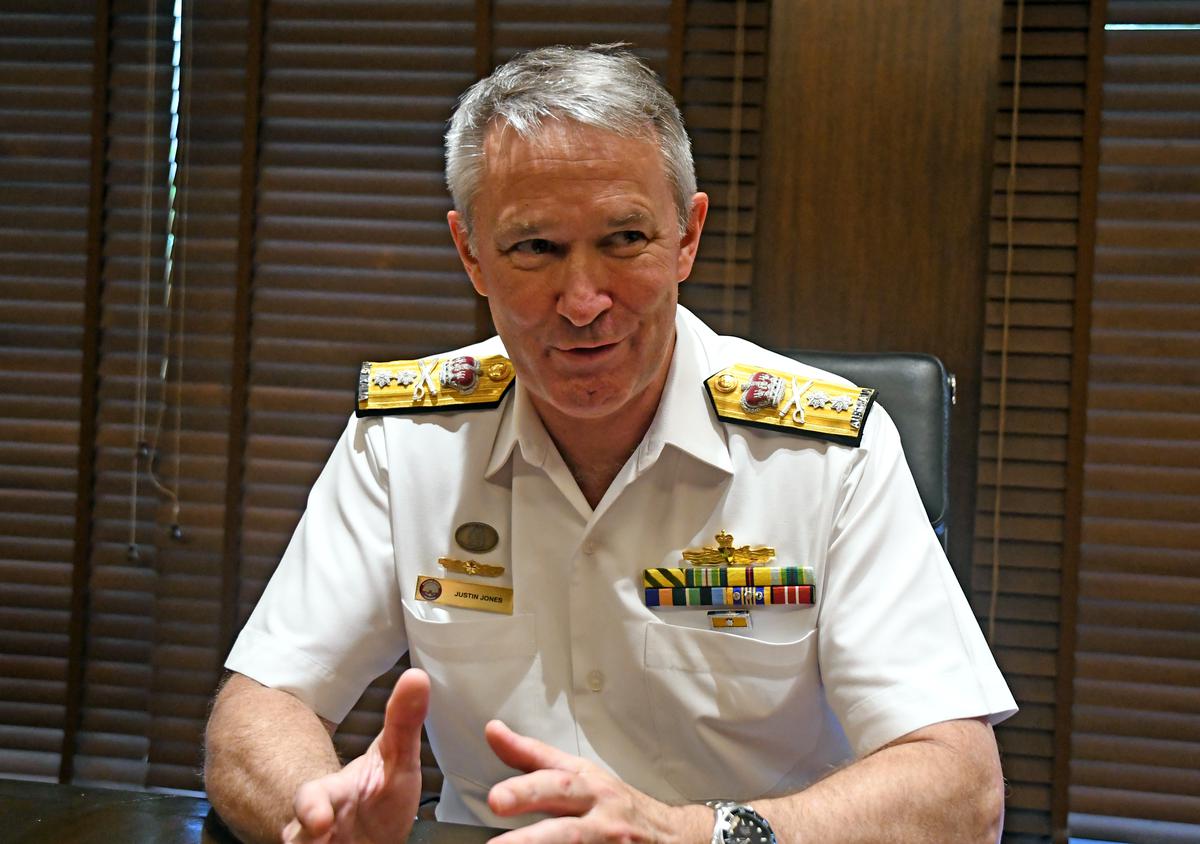
Illegal fishing poses a significant challenge in the Indo-Pacific region, as highlighted by Rear Admiral Justin Jones, Commander Joint Agency Taskforce, Operation Sovereign Borders of Australian Border Force. In an exclusive interaction with The Hindu, he shed light on the various obstacles faced in this vast maritime expanse. Alongside illegal fishing, concerns encompassed marine pollution, potential maritime terrorism, state-based challenges, and illegal people smuggling. The Rear Admiral’s insights provide valuable perspectives on the complex dynamics shaping the Indo-Pacific region.
Subheading 1: Illegal Fishing Threatens Marine Ecosystems
One of the foremost challenges plaguing the Indo-Pacific region is illegal fishing, a practice that jeopardizes the delicate balance of marine ecosystems. Unsustainable fishing methods employed by illicit operators not only deplete fish populations but also damage coral reefs and other vital marine habitats. The need for robust measures to combat illegal fishing activities is paramount to ensure the long-term viability of the region’s marine biodiversity.
Subheading 2: Combating Marine Pollution and Environmental Degradation
In addition to illegal fishing, the Indo-Pacific region grapples with the alarming issue of marine pollution. Pollution from various sources, such as shipping activities, offshore industries, and land-based sources, poses a significant threat to the health and resilience of the marine environment. Addressing this challenge requires collaborative efforts, effective regulations, and the adoption of sustainable practices to mitigate pollution and preserve the region’s pristine waters.
Subheading 3: The Risk of Maritime Terrorism
Rear Admiral Jones highlighted another pressing concern in the Indo-Pacific region: the potential for maritime terrorism. Given the strategic significance of the region, there is a need to remain vigilant against any threats that could compromise maritime security. Collaborative intelligence sharing, coordinated patrols, and robust surveillance mechanisms are vital to counteract and deter any acts of terrorism in the maritime domain.
Subheading 4: State-Based Challenges and Evolving Power Dynamics
The Rear Admiral emphasized the evolving power dynamics in the Indo-Pacific, with rising powers seeking to project their influence across the region. This phenomenon has introduced state-based challenges that demand a nuanced understanding of complex geopolitical dynamics. As the Cold War era waned, the region entered a new phase marked by “multi-polar complexities.” Adapting to these changing dynamics necessitates diplomatic engagement, strategic partnerships, and a comprehensive approach to regional security.
Subheading 5: Tackling Illegal People Smuggling
Illegal people smuggling remains a significant concern in the Indo-Pacific region, as highlighted by Rear Admiral Jones. The exploitation of vulnerable individuals seeking better opportunities puts lives at risk and undermines border security efforts. Collaborative frameworks, intelligence sharing, and targeted operations are crucial in curbing illegal migration and protecting the well-being of those who may fall victim to smuggling networks.
Subheading 6: Strengthening Cooperation and Governance
Addressing the multifaceted challenges facing the Indo-Pacific region requires concerted efforts and enhanced regional cooperation. Strengthening governance frameworks, fostering information sharing mechanisms, and promoting adherence to international maritime laws and regulations are vital steps in safeguarding the region’s interests. By forging strategic alliances and engaging in dialogue, nations can collectively tackle shared challenges and ensure a secure and prosperous Indo-Pacific.
In conclusion, Rear Admiral Justin Jones’ insights shed light on the wide array of challenges confronting the Indo-Pacific region. From illegal fishing and marine pollution to maritime terrorism and state-based complexities, proactive measures must be taken to protect the region’s invaluable natural resources and promote stability. The collective efforts of nations, guided by collaboration and a shared vision, will pave the way for a sustainable and secure future in the Indo-Pacific region.
